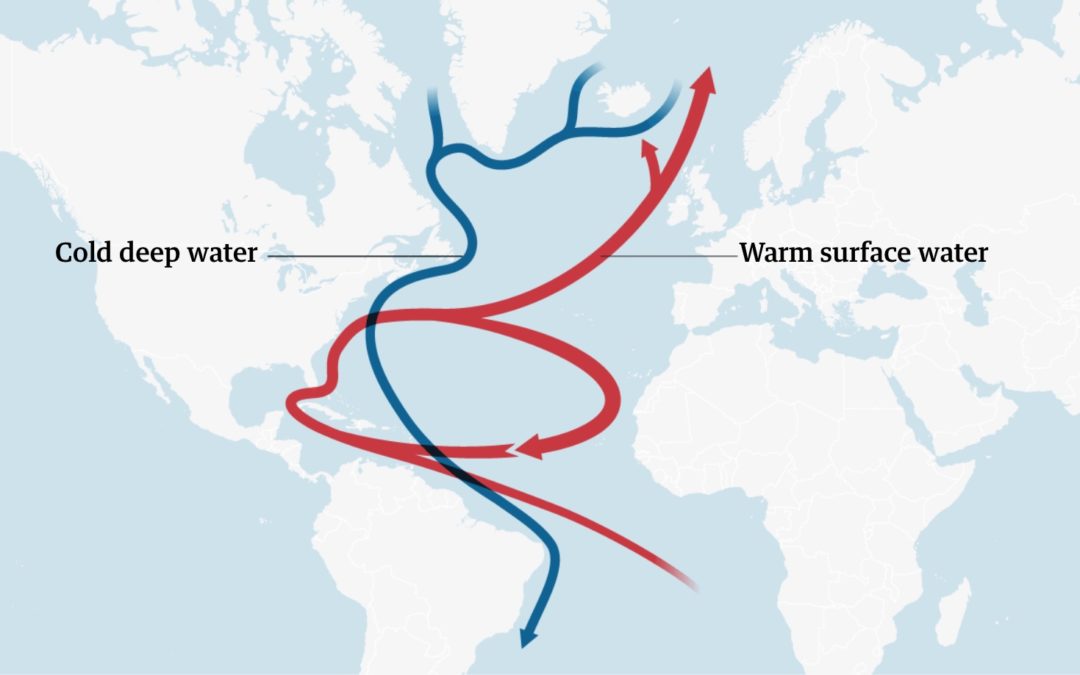SOURCE: The Guardian and Real Climate
DATE: April 11, 2018
SNIP: The warm Atlantic current linked to severe and abrupt changes in the climate in the past is now at its weakest in at least 1,600 years, new research shows. The findings, based on multiple lines of scientific evidence, throw into question previous predictions that a catastrophic collapse of the Gulf Stream would take centuries to occur.
Such a collapse would see western Europe suffer far more extreme winters, sea levels rise fast on the eastern seaboard of the US and would disrupt vital tropical rains. The new research shows the current is now 15% weaker than around 400AD, an exceptionally large deviation, and that human-caused global warming is responsible for at least a significant part of the weakening.
Scientists know that the Atlantic Meridional Overturning Circulation (AMOC) has slowed since 2004, when instruments were deployed at sea to measure it. But now two new studies have provided comprehensive ocean-based evidence that the weakening is unprecedented in at least 1,600 years, which is as far back as the new research stretches.
“AMOC is a really important part of the Earth’s climate system and it has played an important part in abrupt climate change in the past,” said Dr David Thornalley, from University College London who led one of the new studies. He said current climate models do not replicate the observed slowdown, suggesting that AMOC is less stable that thought.

